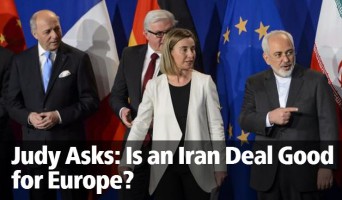È la domanda che Judy Dempsey rivolge a otto esperti di politica internazionale: Cornelius Adebahr, Federiga Bindi, Thierry Coville, Ellie Geranmayeh, Rem Korteweg, Walter Posch, Gianni Riotta, Petr Topychkanov
Il commento di Gianni Riotta:
In 2008, I asked then U.S. president George W. Bush during an interview if he would agree to have Italy join the five permanent UN Security Council members plus Germany at the negotiating table with Iran. Speaking on the record, Bush said yes. After a while, I checked with an influential Western diplomat; the dignified gentleman laughed and said, “Italy? No way, I’m sorry, Germany and France will always veto the idea.”
A deal on Iran’s nuclear program will indeed be good for Europe, if eventually the sanctions disappear and business opportunities flood the old roads to Persia. But the deal is not a European success, because Europe never joined the negotiations as a whole.
Germany doggedly pursued Chancellor Angela Merkel’s diesel-driven foreign policy—sturdy, pragmatic, and serious, but linked only to Berlin’s industrial interests. The UK acted in its new role of independent player: no longer Robin to Washington’s Batman. France almost scuttled the deal in a post-Gaullist dyspeptic bad mood that threatened to annoy U.S. President Barack Obama.
So yes, the European countries will enjoy the fruits, should they eventually come, of a nuclear deal with Iran. But each country will do so at its own picnic.
